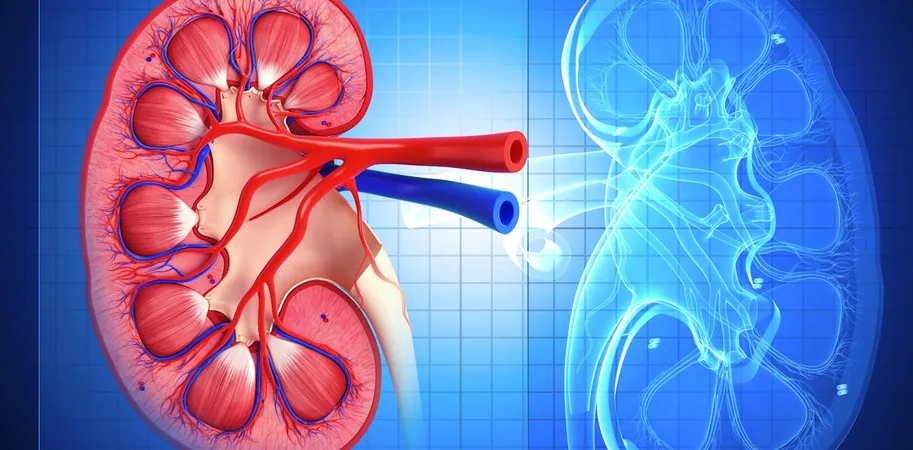
Electronic Alerts Revolutionize Treatment for Valvular Heart Disease—Are You at Risk?
2025-03-31
Author: Jacques
Electronic Alerts Revolutionize Treatment for Valvular Heart Disease—Are You at Risk?
In a groundbreaking study, researchers have discovered that electronic alerts sent to clinical care providers significantly elevate treatment rates and enhance survival outcomes for patients suffering from severe aortic stenosis (AS), a treacherous valvular heart condition that can be devastating when neglected.
A collaborative team from UC San Francisco (UCSF) and Mass General Brigham unveiled findings that show how timely electronic notifications sent within a week of echocardiogram results can expedite critical heart procedures. Their research specifically pointed to a marked increase in the rates of aortic valve replacement (AVR) for symptomatic patients diagnosed with this life-threatening condition, as reported in the esteemed journal Circulation and presented at the 2025 American College of Cardiology's Annual Scientific Session & Expo (ACC.25).
Dr. Sammy Elmariah, MD, MPH, an interventional cardiologist and senior author of the study, explains, "Aortic stenosis is a silent killer when not treated promptly, yet it remains underdiagnosed and undertreated. Our findings suggest that electronic notifications serve as an innovative and effective mechanism to ensure that severe AS is not overlooked."
The researchers conducted a rigorous randomized, controlled clinical trial involving 940 patients at Mass General Brigham, with a substantial subset of 285 healthcare providers tasked with overseeing the care of these patients. Participants were assigned to two different groups: one receiving electronic alerts that flagged the presence of severe AS, and the other continuing with standard care practices.
The results speak volumes. Among patients managed by providers who received electronic notifications, AVR rates soared to 48% compared to just 37% in the conventional care group. Moreover, those under the care of notified providers lived, on average, an additional 12 days longer than their counterparts. Patients in the notification group were more frequently referred to specialists and underwent more confirmatory diagnostic tests, underscoring the effectiveness of these alerts in promoting timely medical intervention.
This innovative approach to alerting providers could hold the key to combating the public health challenge posed by aortic stenosis—a condition that affects countless individuals yet often goes undetected until it's too late. As healthcare systems prioritize quality improvement initiatives, electronic provider notifications could be essential tools in the fight against cardiovascular diseases.
If you or a loved one has been diagnosed with heart issues, it’s critical to stay informed! Knowing the symptoms of aortic stenosis and ensuring regular check-ups could save lives. Don't wait—understanding your heart health might just be your best defense against this silent killer!









 Brasil (PT)
Brasil (PT)
 Canada (EN)
Canada (EN)
 Chile (ES)
Chile (ES)
 Česko (CS)
Česko (CS)
 대한민국 (KO)
대한민국 (KO)
 España (ES)
España (ES)
 France (FR)
France (FR)
 Hong Kong (EN)
Hong Kong (EN)
 Italia (IT)
Italia (IT)
 日本 (JA)
日本 (JA)
 Magyarország (HU)
Magyarország (HU)
 Norge (NO)
Norge (NO)
 Polska (PL)
Polska (PL)
 Schweiz (DE)
Schweiz (DE)
 Singapore (EN)
Singapore (EN)
 Sverige (SV)
Sverige (SV)
 Suomi (FI)
Suomi (FI)
 Türkiye (TR)
Türkiye (TR)
 الإمارات العربية المتحدة (AR)
الإمارات العربية المتحدة (AR)